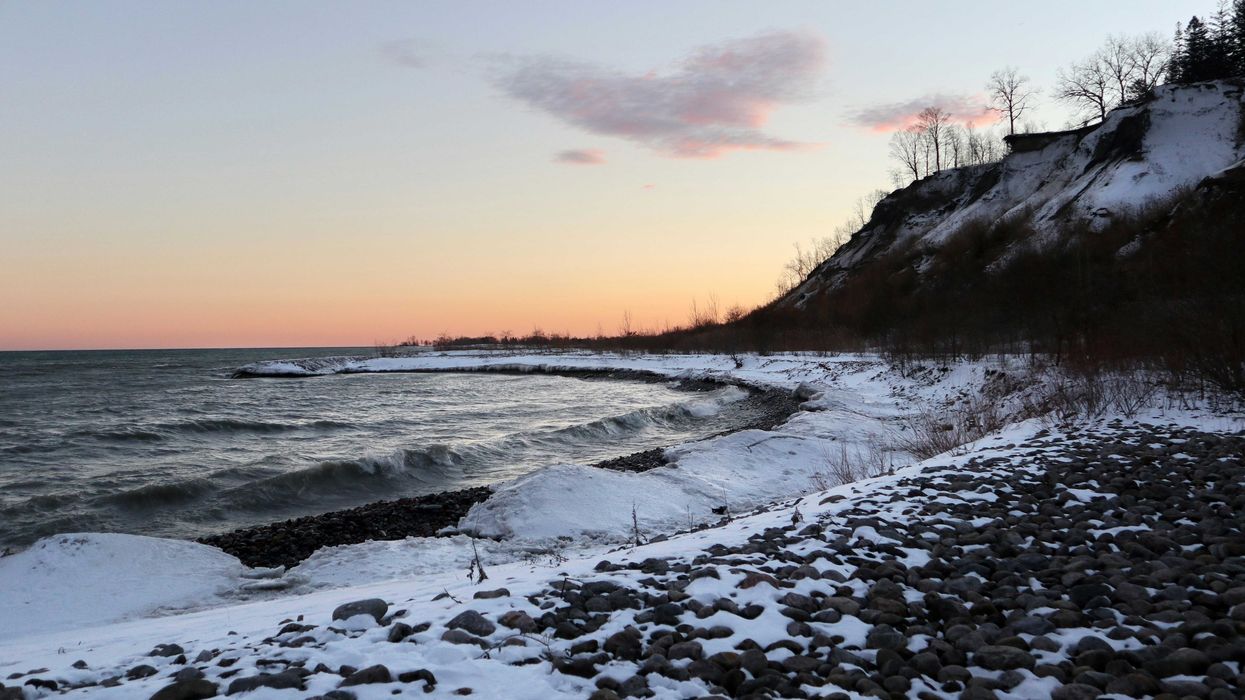Daylight saving time is ending in Canada and here's how early sunsets will be
Some places will see the sunset close to and before 4 p.m. soon! 🌇

Snow-covered beach in Ontario at sunset.
Clocks across Canada will "fall back" soon as daylight saving time ends.
That means the sunsets will be early once the time changes, and happen even earlier through the winter season.
Daylight saving time, which is also commonly known as DST, ends on Sunday, November 2, in Canada.
When it's supposed to be 2 a.m. on Sunday, the clocks will "fall back" to 1 a.m. instead.
The end of daylight saving time in Canada happens in most parts of the country.
But some places don't change the clocks because they're on a standard time throughout the year.
All of Yukon, most of Saskatchewan, some areas in B.C., Southampton Island in Nunavut, and certain communities in eastern Quebec don't "fall back" or "spring forward" each year.
For the rest of the country, the time change means sunsets will be earlier.
In Vancouver, the sunset will be at 4:48 p.m. on November 2 after daylight saving time ends.
The earliest sunsets will happen at 4:13 p.m. from December 8 to December 14 in Vancouver.
Calgary's sunset will be at 5:07 p.m. on November 2.
Then, the earliest sunsets will happen at 4:29 p.m. from December 7 to December 16.
In Yellowknife, the sunset will be at 4:25 p.m. on November 2 when the clocks change.
After that, the earliest sunsets will happen at 3:03 p.m. from December 14 to December 19!
In Winnipeg, the sun will set at 5:03 p.m. on November 2.
The earliest sunsets will happen at 4:27 p.m. from December 6 to December 17 in Winnipeg.
Iqaluit's sunset will be at 3:14 p.m. on November 2.
After that, the earliest sunset will happen at 1:41 p.m. from December 15 to December 20!
In Toronto, the sunset will be at 5:06 p.m. on November 2 when the time changes.
Then, the earliest sunsets of the season will happen at 4:40 p.m. from December 4 to December 13.
In Montreal, the sunset will be at 4:39 p.m. on November 2.
After that, the earliest sunsets will happen at 4:10 p.m. from December 6 to December 13 in the city.
Moncton's sunset will be at 5:03 p.m. on November 2 after daylight saving time ends.
The earliest sunsets will happen at 4:33 p.m. from December 5 to December 14.
In Halifax, the sunset will be at 5:01 p.m. on November 2.
Then, the earliest sunsets will happen at 4:33 p.m. from December 7 to December 12 in the city.
Charlottetown's sunset will be at 4:56 p.m. on November 2.
The earliest sunsets will happen at 4:26 p.m. from December 5 to December 15.
In St. John's, the sun will set at 4:41 p.m. on November 2.
After that, the earliest sunsets in St. John's will happen at 4:09 p.m. from December 6 to December 15.
So, get ready for it to get darker earlier across Canada!
This article's cover image was used for illustrative purposes only.